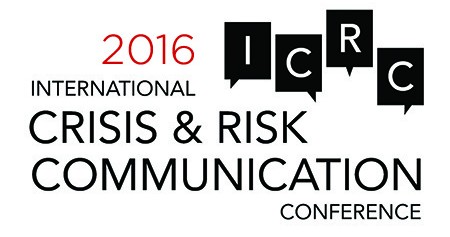
Professor
University of Alabama
United States
Dr. John Vincent, Ph.D. is a Professor in the Kinesiology Department and coordinator of the graduate program in Sport Management at the University of Alabama. Dr. Vincent teaches sport management, marketing, and sociology classes. His main research line focuses on how newspaper narratives portray elite athletes competing in major international sporting events, particularly in relation to their gender, race, and national identity. He has over 50 scholarly publications in refereed journals and textbook chapters.
2014
Breakout Session: Examining Oklahoma State University’ Crisis Response Tactics to Negative Sports Illustrated Reports on the Cowboys’ Football Program*
Sport media uncovering and publicizing scandals in major college football and men’s basketball have become commonplace over the past 30 years. The crisis communication strategies of accused universities have generally been to read and then react to revelations of wrongdoing through a process that initially entails (A) acknowledging seriousness of the “alleged” accusations, (B) not admitting or denying any wrongdoing, (C) promising a full internal investigation, and (D) pledging to fix any problems uncovered, while (E) adhering to the educational mission of the university. However, actions beyond those promises are rarely taken until the initial reporting of the scandal is published by a variety of media outlets. After the investigations and possible coaching/athletics staff dismissals, the accused sport program(s) and its athletic department engage in long-term, image-repair strategies while rarely acknowledging the scandal itself.
Oklahoma State University appeared to face a far greater crisis when Sports Illustrated – long recognized as the top outlet for U.S. investigative sport journalism – informed OSU officials that it planned to soon publish an in-depth series on the school’s football program that ran the “gamut of college-scandal-reporting allegations: payments to players, academic fraud, drugs, sex, and players being discarded once their talents were no longer of any use to the school” (Cosentino, 2013, ¶ 17). SIinterviewed an unprecedented 64 former players, 60 of whom spoke on the record, with nearly all claiming alleged rules violations or questionable ethical practices.
OSU communications officials were notified of the five-part series just seven days before the first part of the series was published on SI’s website. OSU’s responses contrasted the norm above and will likely be emulated by many university athletic programs in the future. Examining the crisis communication tactics of OSU through insider access are the foci of this case study.
First, OSU centralized who would comment on the allegations in the series, with all responses coordinated through the University’s main communications office. OSU then set up a Website, using convergent mediums (e.g., videos, articles, etc.) and a variety of public figures (e.g., University President Burns Hargis, prominent booster T. Boone Pickens, then-Fox Sports reporter Jason Whitlock, etc.) to respond and repudiate much of SI’s reporting. OSU also questioned the objectivity of SIreporter Thayer Evans, who previously had wrote unflattering commentaries about OSU.
The strategy ultimately worked. ESPN, Deadspin, and other prominent sport media outlets noted the lack of fact-checking, sensationalism, and erroneous reporting by SI throughout the series. The focus of the national story shifted away from the OSU football scandal to the failure to verify sources and a perceived agenda-based reporting by a major media outlet.
As a result, few negatives to OSU have come from the scandal. The football program is enjoying one of its most successful seasons and Coach Mike Gundy said the notoriety from the SI series has actually helped in the recruitment of top high school prospects (Hines, 2013).
*Edward (Ted) Kian and John Vincent co-authored this paper. Edward (Ted) Kian and John Vincent will present.


